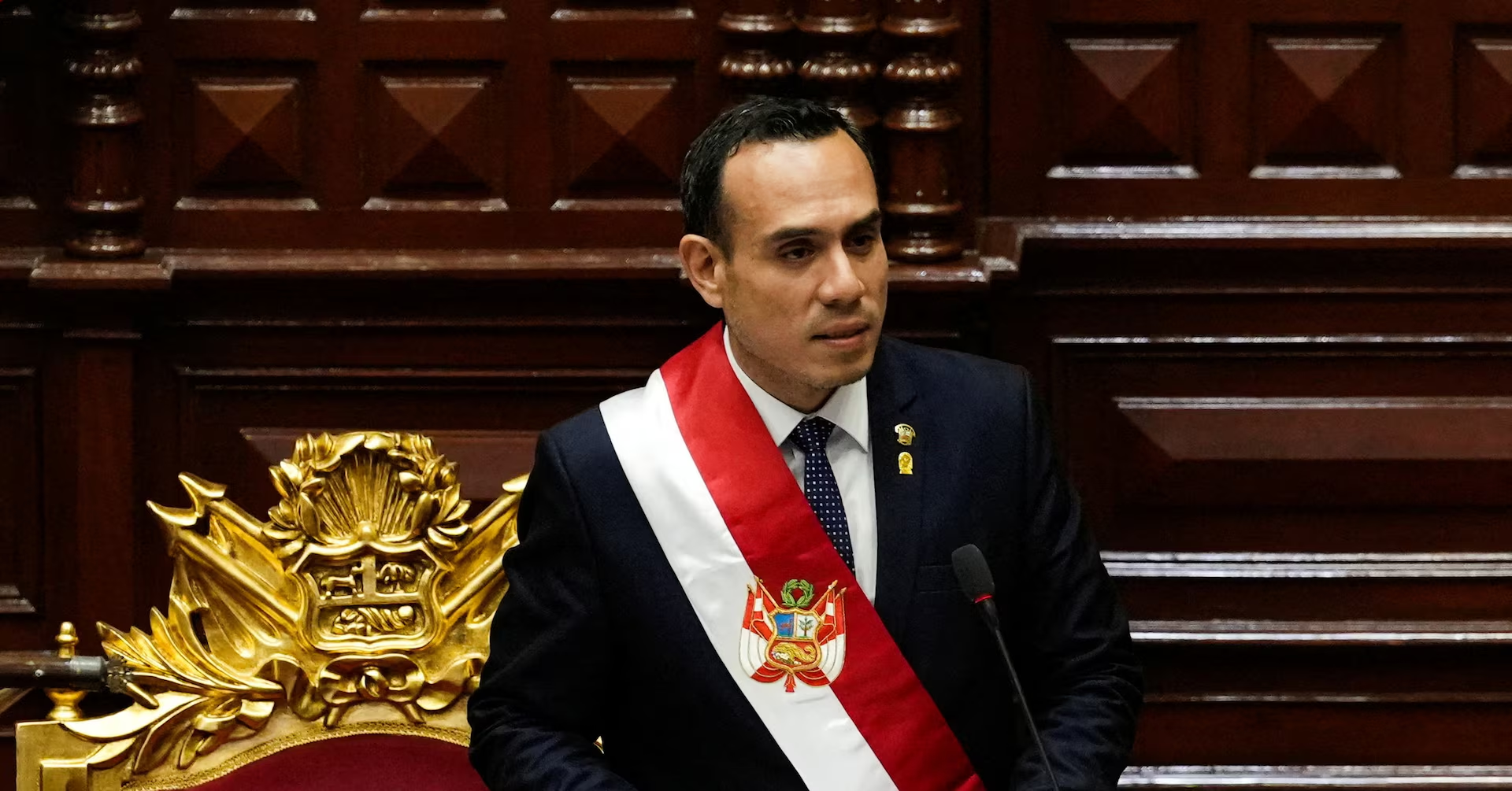
Peruvian President Jose Jeri has declared a 30-day state of emergency in the capital, Lima, and the neighbouring Callao Province in a sweeping move to curb surging crime and restore public order.
The announcement, delivered during a televised national address on Tuesday, follows a week of violent protests that left one person dead and more than 100 others injured.
President Jeri said the measure, which took effect just after midnight, was approved by the Council of Ministers and authorises the deployment of the armed forces alongside the national police to maintain security and enforce law and order.
“We are moving from defence to offence in the fight against crime — a fight that will help us reclaim peace, tranquillity, and the trust of millions of Peruvians,” the president declared.
Jeri, who assumed office earlier this month following the ouster of former President Dina Boluarte, has made combating insecurity a cornerstone of his administration.
Within his first week in office, he unveiled a new cabinet and faced his first major protest, organised by civil society groups and young activists from the so-called Generation Z, demanding urgent action to tackle rising violence and economic hardship.
Peru has witnessed a sharp increase in armed robberies, kidnappings, and gang-related killings in recent months — especially in urban centres such as Lima and Callao. Analysts say the country’s deep-rooted social inequality and fragile political climate have fuelled the unrest.
This is not Peru’s first attempt to quell insecurity through emergency powers. In March, former President Boluarte imposed a similar 30-day order, but critics argue that repeated declarations have done little to reduce crime rates or rebuild public confidence in the nation’s overstretched security institutions.
Government officials, however, maintain that this latest measure represents a renewed and coordinated strategy, combining intelligence-driven policing with community safety initiatives to restore order in one of South America’s most volatile urban corridors.
“This is not business as usual,” a government spokesperson said. “It’s a decisive step toward reclaiming our streets and ensuring that law-abiding citizens can live without fear.”



